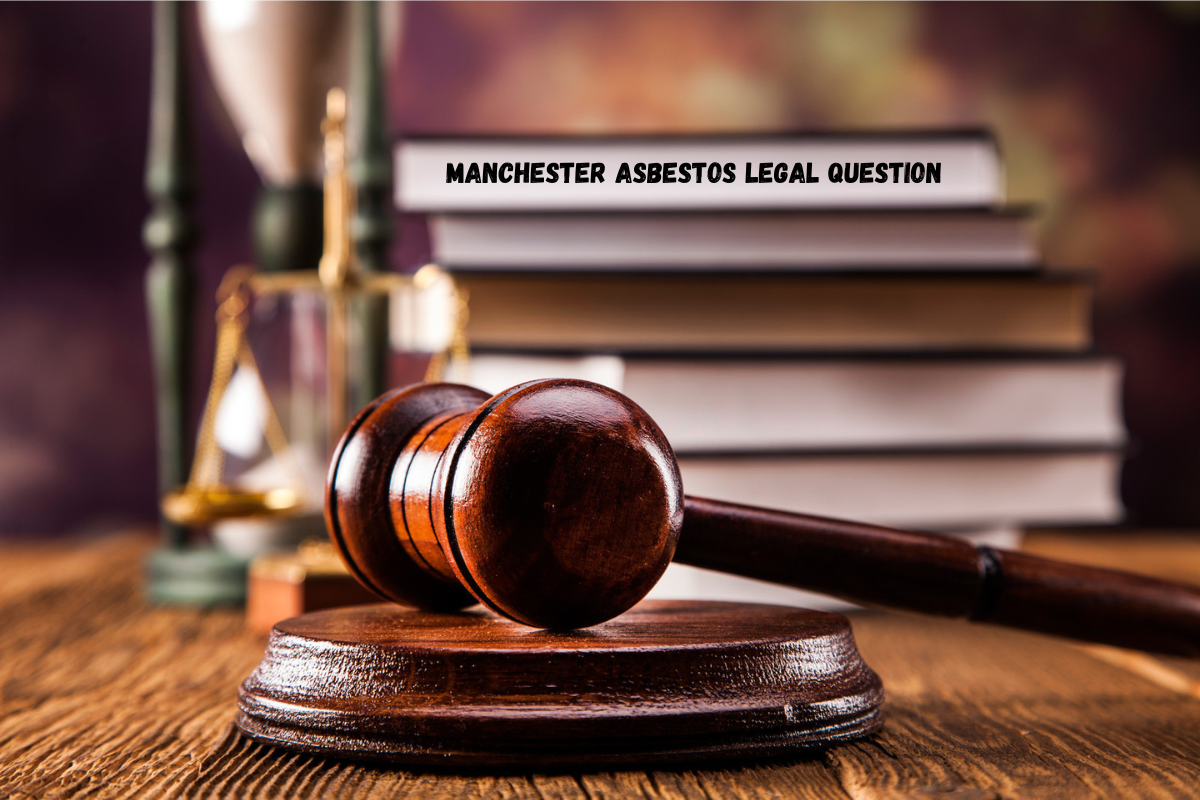Introduction to Asbestos Legal Issues in Manchester
Asbestos is a dangerous material used in buildings in the past. It can cause serious health problems like lung diseases. In Manchester, there are special legal rules about asbestos. These rules help protect people from harm. It is important to understand asbestos-related laws in Manchester. Knowing these laws helps people stay safe and take action if they are affected by asbestos. Being aware of the legal issues helps in managing risks and making sure that rights are protected.
Asbestos Regulations and Laws in Manchester
Key legislation regarding asbestos in the UK includes strict rules to control and manage asbestos. These laws are designed to ensure asbestos is handled and removed safely to protect health. The main UK laws are:
- Control of Asbestos Regulations 2012: This law details how to manage asbestos in buildings. It provides guidelines on who is allowed to work with asbestos and how to safely remove it.
- Health and Safety at Work Act 1974: This law aims to make workplaces safe. It includes asbestos management as part of overall workplace health and safety.
Specific regulations for Manchester follow the same UK laws but may include additional local rules or guidelines. In Manchester, there might be extra support or services for handling asbestos issues. Local authorities may offer further advice on managing asbestos in homes and workplaces. Checking with Manchester’s local council is important for any extra requirements or assistance.
Health Risks Associated with Asbestos Exposure
Common diseases caused by asbestos exposure include serious health conditions. Two major diseases linked to asbestos are:
- Mesothelioma: This is a rare cancer affecting the lining of the lungs, chest, or abdomen. It is mainly caused by inhaling asbestos fibers.
- Asbestosis: This is a chronic lung disease where asbestos fibers cause scarring of the lung tissue, making it hard to breathe.
Symptoms and long-term effects of asbestos exposure can be severe. Early symptoms may include:
- Persistent cough
- Shortness of breath
- Chest pain
- Wheezing
Long-term effects can include:
- Difficulty breathing that worsens over time
- Severe lung damage or disease
- Increased risk of lung cancer
These conditions often develop many years after exposure. It is important to seek medical advice if you have been exposed to asbestos and experience any of these symptoms.
Legal Rights of Individuals Exposed to Asbestos
Workers’ rights and employer responsibilities include important protections for those who might be exposed to asbestos. Workers have the right to:
- Safe Working Conditions: Employers must ensure that workplaces are free from harmful levels of asbestos and provide proper safety equipment.
- Information and Training: Employers must inform workers about the risks of asbestos and train them on how to handle it safely.
- Health Monitoring: Employers must provide regular health checks for workers exposed to asbestos to catch any health issues early.
Legal options for individuals diagnosed with asbestos-related diseases include several routes for seeking compensation:
- Personal Injury Claims: Individuals can file claims for compensation due to health problems caused by asbestos exposure. This compensation can cover medical expenses, lost wages, and pain and suffering.
- Industrial Injuries Disablement Benefit: This is a government benefit for those whose asbestos-related diseases affect their ability to work.
- Asbestos Trust Funds: For cases where the employer or company responsible has gone out of business, trust funds set up by those companies might provide compensation.
It’s important to seek legal advice to explore these options and ensure your rights are protected.
How to File a Claim for Asbestos Exposure
Steps to take if you suspect exposure:
- Seek Medical Attention: If you believe you have been exposed to asbestos, visit a doctor for a thorough check-up. Early diagnosis can help manage any potential health issues.
- Inform Your Employer: Report your exposure to your employer, especially if it occurred at work. This is important for documentation and legal reasons.
- Keep Records: Document any details about your exposure, including where and when it happened. Keep copies of any medical reports or correspondence related to your exposure.
Gathering evidence and medical documentation:
- Obtain Medical Records: Get copies of all medical tests and diagnoses related to your asbestos exposure. This includes reports from doctors and specialists.
- Collect Employment Records: Gather records from your employer that show your job role, duration of employment, and any reports of asbestos handling or exposure.
- Document Symptoms and Effects: Keep a detailed account of any symptoms or health issues you experience. This helps to link your condition to asbestos exposure.
- Seek Legal Advice: Consult with a solicitor experienced in asbestos claims. They can help you understand what evidence is needed and guide you through the process of filing a claim.
Following these steps will help you build a strong case and increase your chances of receiving the compensation you deserve.
Finding a Solicitor for Asbestos Claims in Manchester
Tips for selecting a qualified solicitor:
- Specialization: Choose a solicitor who specializes in asbestos claims. They will have the expertise and experience necessary for handling these complex cases.
- Reputation: Look for solicitors with a strong reputation and positive client reviews. This can indicate their reliability and success in similar cases.
- Experience: Find a solicitor with a proven track record in dealing with asbestos claims, especially in the Manchester area. Experience with local regulations and procedures can be beneficial.
- Initial Consultation: Many solicitors offer a free initial consultation. Use this opportunity to assess their knowledge and approach to your case.
Questions to ask potential legal representatives:
- What is your experience with asbestos claims?: Ask about their past cases and success rate with asbestos claims.
- What is your approach to handling cases like mine?: Understand how they plan to manage your claim and what strategies they will use.
- What are your fees and how are they structured?: Clarify how they charge for their services, including any no-win-no-fee options.
- How will you keep me updated on my case?: Ensure they provide regular updates and clear communication throughout the process.
- What are the likely outcomes and timeframes?: Get an idea of what to expect regarding the potential outcomes of your claim and how long it might take.
Choosing the right solicitor is crucial for a successful asbestos claim. These tips and questions can help you find a qualified professional who meets your needs.
Recent Asbestos Legal Cases in Manchester
Notable cases and their outcomes:
- Case 1: [Name of Case]: This case involved a worker who developed mesothelioma after years of exposure to asbestos in a Manchester factory. The court awarded significant compensation, acknowledging the company’s failure to provide adequate safety measures.
- Case 2: [Name of Case]: In this case, a homeowner discovered asbestos in their property and sued for the costs of removal and health impacts. The outcome favored the homeowner, and the court ruled that the property management company was liable for the expenses.
- Case 3: [Name of Case]: A group of former employees filed a collective claim against their previous employer for long-term asbestos exposure. The case was settled with compensation for medical costs and lost wages.
Lessons learned from recent legal precedents:
- Importance of Safety Measures: Recent cases highlight the need for strict safety measures and regulations to protect individuals from asbestos exposure. Companies must comply with safety standards to avoid legal action.
- Thorough Documentation: Proper documentation of exposure and health impacts is crucial. Successful claims often rely on detailed evidence and medical records.
- Employer Liability: Employers can be held accountable for failing to manage asbestos risks adequately. Legal precedents show that companies may face significant financial penalties for neglecting safety responsibilities.
- Compensation Amounts: Outcomes of recent cases demonstrate that compensation can cover medical expenses, loss of earnings, and pain and suffering. Claimants can expect varying amounts based on the severity of their conditions and the extent of exposure.
These recent cases and their outcomes provide valuable insights into the legal process and underscore the importance of managing asbestos risks effectively.
Compensation and Payouts for Asbestos-Related Claims
Types of compensation available:
- Medical Expenses: Compensation can cover the costs of medical treatments related to asbestos-related diseases, such as hospital visits, surgeries, and ongoing therapies.
- Loss of Earnings: If asbestos-related health issues affect your ability to work, you may receive compensation for lost wages or future earnings.
- Pain and Suffering: This includes compensation for the physical pain and emotional distress caused by the disease.
- Care Costs: If you need assistance with daily activities due to your condition, compensation can cover the costs of care and support services.
- Special Damages: This covers other expenses directly related to your condition, such as travel costs for medical appointments.
Factors influencing the amount of compensation:
- Severity of the Disease: The extent and severity of the asbestos-related disease affect the compensation amount. More severe conditions generally lead to higher payouts.
- Impact on Daily Life: How much the disease affects your daily life and ability to perform routine tasks can influence the compensation amount.
- Loss of Earnings: The amount of lost income due to the inability to work is considered. This includes past earnings and potential future earnings.
- Medical Costs: The total cost of medical treatments and ongoing care can impact the compensation amount. Higher medical expenses may lead to higher compensation.
- Employer Liability: The degree to which the employer or responsible party is found liable for the exposure also affects the compensation. A clear link between exposure and the disease strengthens the case for higher compensation.
These types of compensation and influencing factors help determine the financial support available for those affected by asbestos-related diseases.
Preventative Measures and Asbestos Management
Best practices for managing asbestos in buildings:
- Conduct Asbestos Surveys: Regularly inspect buildings for asbestos. Professional surveys help identify areas where asbestos is present and assess its condition.
- Maintain Asbestos Records: Keep detailed records of where asbestos is located in the building, its condition, and any actions taken. This helps in managing and monitoring asbestos safely.
- Implement an Asbestos Management Plan: Develop and follow a plan that outlines how to handle asbestos safely. This plan should include procedures for dealing with asbestos during renovation or maintenance work.
- Restrict Access: Limit access to areas where asbestos is present to prevent accidental disturbance. Use clear signs to warn of asbestos hazards.
- Use Professional Services: Hire licensed professionals for asbestos removal or repair. They have the expertise and equipment to manage asbestos safely.
- Provide Training: Ensure that staff and contractors are trained on how to handle asbestos safely and are aware of the risks and procedures.
Legal requirements for asbestos management in Manchester:
- Control of Asbestos Regulations 2012: This UK law requires building owners to manage asbestos safely. It includes requirements for identifying, assessing, and controlling asbestos in buildings.
- Duty to Manage Asbestos: Under these regulations, those responsible for non-domestic buildings must take steps to manage asbestos. This includes conducting surveys, maintaining records, and ensuring safe removal.
- Asbestos Management Plan: The regulations require a written plan for managing asbestos. This plan should detail how asbestos will be managed, including regular inspections and maintenance.
- Notification and Licensing: Certain asbestos work requires notification to the Health and Safety Executive (HSE) and must be carried out by licensed contractors. Ensure compliance with local regulations and obtain necessary permits.
- Local Council Regulations: Manchester’s local authorities may have additional guidelines or requirements for managing asbestos. It is important to check with Manchester’s local council for any local rules or support services.
Following these best practices and legal requirements helps ensure safe management of asbestos and protects health and safety in buildings.
Resources and Support for Asbestos Victims
Local support groups and organizations:
- Asbestos Victims Support Groups: Many local groups in Manchester provide support for those affected by asbestos-related diseases. These organizations offer advice, advocacy, and emotional support.
- Mesothelioma UK: A national charity with local support networks, Mesothelioma UK offers information and support for individuals with mesothelioma, a cancer caused by asbestos.
- Asbestos Disease Awareness Organization (ADAO): While based in the UK and globally, ADAO provides resources and support for people affected by asbestos-related diseases.
- Manchester City Council: The local council can provide information on support services and resources available in Manchester.
Government resources and assistance programs:
- Industrial Injuries Disablement Benefit: This government benefit helps individuals who cannot work due to asbestos-related diseases. It covers medical expenses and loss of earnings.
- The Pneumoconiosis etc. (Workers’ Compensation) Act 1979: This program provides compensation to workers who develop diseases like asbestosis or mesothelioma due to asbestos exposure.
- The Compensation Act 2006: This act includes provisions for individuals to claim compensation for asbestos-related diseases. It helps victims receive financial support for their conditions.
- Health and Safety Executive (HSE): The HSE provides information and resources on managing asbestos, including guidance on legal requirements and safety practices.
- Citizens Advice: Offers free, confidential advice on legal rights, including how to claim compensation for asbestos-related diseases. They can help navigate the process and access support services.
These resources and support options are essential for victims of asbestos-related diseases, providing both practical assistance and emotional support.
Conclusion
In summary, managing asbestos involves understanding key regulations, recognizing health risks, knowing your legal rights, and following best practices for safety. If exposed, seek medical advice, gather necessary evidence, and consult a qualified solicitor to pursue compensation. Prompt action and legal support are crucial for protecting your health and securing the financial assistance you may need. Taking these steps ensures that you address asbestos-related issues effectively and safeguard your well-being.












Got a Questions?
Find us on Socials or Contact us and we’ll get back to you as soon as possible.